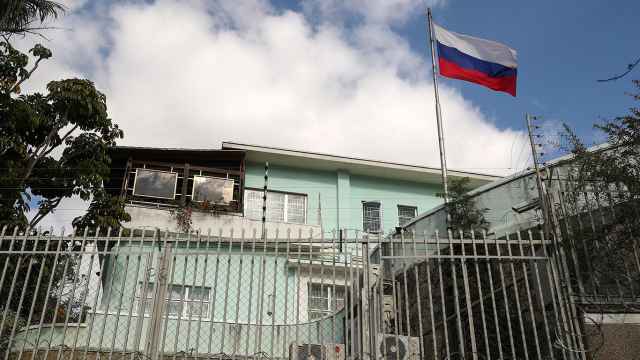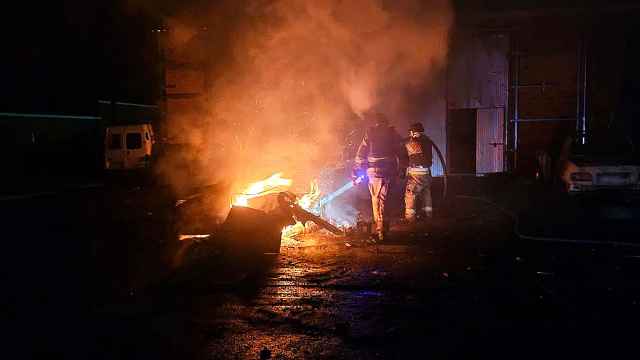SAMARA — The government plans to prolong tax breaks for state-controlled Rosneft's Vankor oil field in East Siberia for four months as it seeks to maintain crude output at a post-Soviet record.
Final proposals on oil industry taxes will be made "soon" and submitted to lawmakers next summer, Prime Minister Vladimir Putin said Thursday at a meeting in Samara.
Russia plans to lower the tax burden on oil companies to 65 percent of profit from 73 percent now, Energy Minister Sergei Shmatko said at the meeting. The current level of production will ensure budget revenue and allow companies to develop, he said.
Oil tax revenue accounts for 44 percent of the nation's budget.
The government intends to maintain oil output at 500 million tons a year, or 10 million barrels per day, for at least the next decade, Putin said. Russia's reserves allow output to stay at that level for the next 40 years.
Thirty percent of the oil reserves are unprofitable to develop under the current tax regime, Shmatko said.
Output will rise 1.1 percent this year, Putin said. Output may rise only about 1 percent to 2020 at current prices and given the state of the country's oil fields, Shmatko told reporters. By 2020, about 70 percent of the country's oil will be produced in aging oil regions, he said.
Rosneft has considered slowing production at the Vankor field, the nation's largest new oil development, as the government sought to raise taxes to help narrow a budget gap that may reach 5.3 percent of gross domestic product this year. The field supplies a pipeline across East Siberia to Asian markets, where Russia seeks to tap growing energy demand.
Vankor's production reached about 264,000 bpd as of September, after starting in August last year, according to the Energy Ministry's statistics unit. Crude produced at the field was exempt from export duties, Russia's most burdensome oil tax, until July 1 when the state imposed a discounted tax.
The government supports domestic oil companies' efforts to build a presence in overseas markets, both in developing new deposits and in refining, Putin said.
"These projects will bring our companies closer to foreign consumers, end users and the exchange of investment," Putin said. "The exchange of assets will increase the trust in the global energy industry, make it more stable and predictable and even out supply and demand."
Putin said Russia needed 8.6 trillion rubles ($280 billion) of investment in the oil industry until 2020. Production may fall to 395 million tons a year or rise to 547 million tons in 2020, while refining may fall to 205 million tons or reach as high as 272 million, Shmatko said.
A Message from The Moscow Times:
Dear readers,
We are facing unprecedented challenges. Russia's Prosecutor General's Office has designated The Moscow Times as an "undesirable" organization, criminalizing our work and putting our staff at risk of prosecution. This follows our earlier unjust labeling as a "foreign agent."
These actions are direct attempts to silence independent journalism in Russia. The authorities claim our work "discredits the decisions of the Russian leadership." We see things differently: we strive to provide accurate, unbiased reporting on Russia.
We, the journalists of The Moscow Times, refuse to be silenced. But to continue our work, we need your help.
Your support, no matter how small, makes a world of difference. If you can, please support us monthly starting from just $2. It's quick to set up, and every contribution makes a significant impact.
By supporting The Moscow Times, you're defending open, independent journalism in the face of repression. Thank you for standing with us.
Remind me later.





